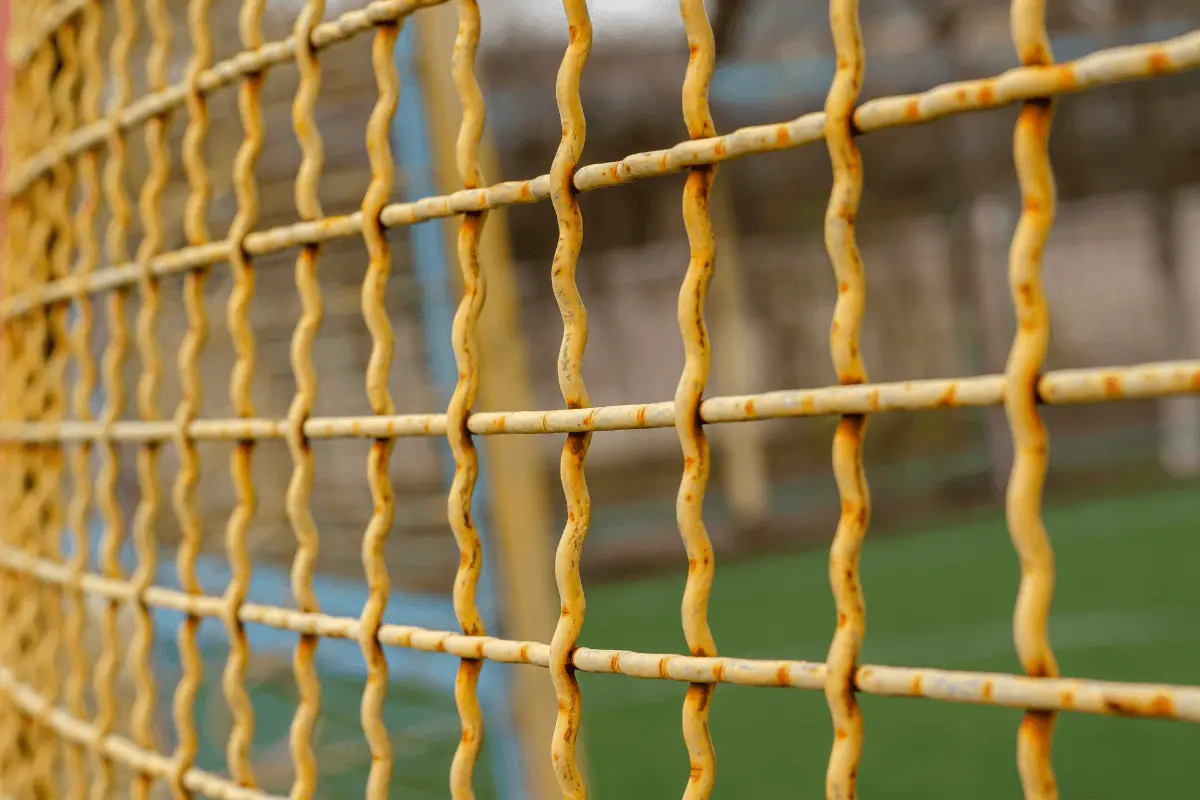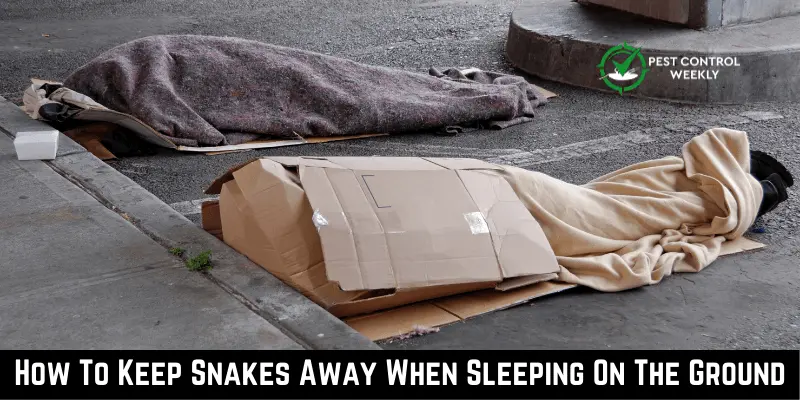Camping and spending the night on the ground is a thrilling and freeing adventure. However, the possibility of a nighttime encounter with a snake can be rather frightening. What precautions should be taken if one must sleep on the ground, and how to keep snakes away when sleeping on the ground?
The following are some ways to prevent snakes from approaching your sleeping area:
- Choosing the Right Location
- Proper Ground Preparation
- Barriers to Keep Snakes Away
- Scent-Based Deterrents
- Proper Gear and Equipment
- Using a Tent or Hammock
- Sleeping Bag Recommendations
- Additional Tools to Ward Off Snakes
- Emergency Measures
If you plan on spending the night on the ground but are worried about snakes, read this article for some helpful tips on avoiding them.
Understanding The Risks of Sleeping on the Ground
Camping and outdoor enthusiasts put themselves at serious risk by sleeping on the ground in the wild, especially in areas with a high snake population. Knowing the risks of sleeping on the ground and the measures you can take to reduce those risks.
The Dangers of Different Snakes
Venomous snakes are a major safety risk when making camp on the ground. Even if the victim survives at first, a bite from a poisonous snake can result in lifelong discomfort, tissue damage, and even death. North American rattlesnakes, cottonmouths, copperheads, Asian cobras, vipers, and kraits are all examples of common venomous snakes.
Although non-venomous snakes pose less of a threat than evil ones, any bite or contact with a non-venomous snake while sleeping on the ground can still cause fear, pain, and even harm. The rat and garter snakes are two examples of nonvenomous snakes frequently encountered in camping locations.
How to Prevent Snakes from Approaching Your Sleeping Area?
Choosing The Right Location

To choose the best place to sleep so that snakes don’t come into your room, you must be smart and aware of your surroundings. Choose high places to rest, like hammocks or platforms, and keep the area clean. Snakes looking for food are drawn to water sources. So, stay away from them.
Use natural deterrents like aromatic plants to make a shield that smells bad. Set up walls that snakes can’t access, and ensure your sleeping area is well-lit. Using these clever ideas, you can make a safe place to sleep without worrying about snakes.
Proper Ground Preparation

You must prepare the ground well to prevent snakes from entering your sleeping area. Start by getting rid of any trash, plants, or rocks that could be hiding places for these elusive animals. Level the land to eliminate possible holes and keep the area clear of trash.
Also, make a safety zone around your sleeping area by putting up crushed rock barriers. Check the site often for signs of snake activity and remove anything that could attract snakes. By carefully preparing and keeping the ground, you make a place snakes don’t want to be and ensure you can sleep peacefully.
Barriers To Keep Snakes Away

To construct barriers that effectively thwart snakes from near your sleeping area, consider using a combination of physical and natural deterrents. Erect a fine mesh or hardware cloth fence, extending above and below ground level to create a formidable obstacle. Supplement this physical barrier with aromatic plants, such as marigolds, lemongrass, or garlic, to form a fragrant shield that discourages serpentine trespassers.
Additionally, use crushed rock or gravel as a perimeter, as snakes dislike navigating rough surfaces. By merging these inventive and resourceful barriers, you can confidently secure your resting quarters from unwelcome reptilian guests.
Scent-Based Deterrents

Utilizing scent-based deterrents can be an effective method to dissuade snakes from venturing near your sleeping area. Incorporate aromatic plants, such as marigolds, lemongrass, or garlic, around your resting zone to create a fragrant barrier that repels snakes.
Alternatively, consider using commercially available snake-repellent granules or sprays that contain potent odors unappealing to serpents. Apply these products judiciously along the perimeter of your sleeping area, following the manufacturer’s instructions. By thoughtfully employing scent-based deterrents, you can harness the power of olfactory aversion to safeguard your slumber from potential snake encounters.
Proper Gear and Equipment

It is essential to take various precautions to keep snakes out of one’s place of rest. It is crucial to install a barrier around the place of rest made of carefully manufactured snake-resistant mesh. This solid wall provides an impregnable barrier against any reptile intruders.
Maintaining a spotless home is essential to snake prevention, as is removing any hiding places or food sources that can attract them. The anti-snake castle is strengthened by adding an ultrasonic repellent, which emits unpleasant frequencies to our legless companions. The total of these preventive measures ensures a safe, snake-free refuge in which to get some shut-eye.
Using A Tent Or Hammock

Both tents and hammocks have advantages in preventing snakes from entering one’s sleeping area. Tents become an unassailable fortress when combined with a mesh barrier to keep snakes out. Keeping the tent’s door closed and secured helps prevent unwanted visitors.
However, since hammocks hang from the ceiling, they are inaccessible to snakes and other reptiles that live on the ground. Adding repellent compounds, like fragrant oils or powders, to the hammock’s suspension lines strengthens this opulent defense. The final decision will depend on the individual’s preferences and the unique characteristics of the setting.
Sleeping Bag Recommendations

If you want some peace when you sleep outside, invest in a good sleeping bag that will keep snakes away. Choose a strong, densely woven fabric that can withstand punctures to keep snakes out of your bag. This protective cocoon has two layers, the outer of which is made of a snake-proof mesh.
One option is to use a sleeping bag that doubles as a mosquito net and snake protection. Give preference to bags with tight closures, leaving no openings that a snake could use to sneak inside. A well-selected sleeping bag will allow you to relax and sleep well in the bosom of Mother Nature.
Additional Tools To Ward Off Snakes
It’s best to take a multipronged approach with supplemental instruments to ward off serpentine intrusions into one’s sleeping area. Use ultrasonic and vibrational solar-powered snake repellers to ward off our scaly foes. Use essential oils or powders made from plants that have been shown to repel snakes as a natural deterrent, and scatter them liberally around the sleeping space.
Since snakes see red light as faint, a torch with red LEDs is effective for stealthy observation while maintaining an element of surprise. Combining these additional tools may create a robust defense mechanism against any unwanted reptile incursions.
Emergency Measures
In an emergency, one must move quickly and creatively to prevent snakes from entering one’s bedroom. Build a makeshift fence out of anything you have on hand, whether it be sticks or stones. Create a homemade hammock that keeps you off the ground and out of reach of any snakes you encounter.
Use a fire cautiously placed to provide light and warmth without inviting unwanted attention. These makeshift measures may offer some safety from undesired snake encounters in times of need.
Snake Bite Identification
It can be tough to know what to do if a snake bites you if you are unfamiliar with the many species of snakes and cannot tell them apart. You should always assume that a snake bite is poisonous. Most snakes in the United States are harmless. However, some do have poison. The only non-pit viper venomous snake found in the United States is the coral snake. The pit viper is easily identified by the distinct notch between its eye and nostril. The snake’s heat sensor is located in this depression.
All pit vipers, indeed, have triangle heads. However, not all triangular-headed snakes are poisonous. You will know right away if a snake has bitten someone with you. However, sometimes the victim succumbs to the bite immediately, and the snake is nowhere to be seen.
The following are some of the most common signs of a snake bite:
- Double prick wounds
- Redness and edema at the wound sites
- Discomfort at the bite site
- Trouble breathing
- Nausea
- Vomiting
- Blurred vision
- Sweating
- Drooling
- Numbness in the face and limbs
- Toxicities from several venomous snakes are species-specific
What to Do if a Snake Approaches You?
According to Department for environment and water do not attempt to kill a snake that approaches you. Snakes are timid creatures that often only attack when provoked. Everyone needs to be evacuated from the room if a snake is spotted within the house. You should close the door, stuff a towel under it, and then contact a snake catcher for help. Be cautious if you spot a snake in the wild. If it runs into the woods or a paddock, you probably won’t see it again. You might need to contact a snake catcher if it goes under a car or into a shed.
First Aid For Snake Bites
If a snake has bitten you, get immediate medical attention. There are, nonetheless, a few pointers to keep in mind:
- Please call 911 right away.
- Consider the timing of the bite.
- Maintain quiet immobility, as any motion may hasten the venom’s spread.
- If you’ve been bitten, the area around the wound will likely expand, so you should avoid wearing anything that could squeeze the wound.
- Don’t let the victim get up and go away. Move them around by hand or in a car.
- Don’t bother the snake or kill it. If you can, snap a photo; otherwise, don’t look for it.
Contrary Beliefs About First Aid For Snakes
Several previously accepted first aid practices have since been proven to be ineffective or even hazardous.
- A tourniquet should not be used.
- The snake bite should not be sliced open.
- Do not apply ice to the bite.
- Unless a medical professional instructs, you should not give the patient any medication.
- Do not bring the victim’s bitten region up higher than their heart.
- Don’t try sucking the poison out of your mouth.
- Don’t try to use a Hoover pump. These tools were once advised for extracting venom from snakes, but modern research suggests they may cause more harm than benefit.
What To Do About A Snake Bite
The first and most critical step after a snake bite is to seek immediate medical attention. The victim will be examined by a doctor, who will then choose the best course of therapy. A bite from a venomous snake may not always be fatal. The bite’s severity is determined by its location, as well as the victim’s age and general health. The doctor might clean the wound and administer a tetanus shot if the bite wasn’t too bad.
The doctor may give you antivenin if the situation is critical. This medicine was developed using snake venom to alleviate the discomfort associated with snake bites. The victim receives an injection. The sooner the antivenom is administered, the better its chances of success.
Final Thoughts
During a camping trip, sleeping on the ground can be a delightful experience; nevertheless, taking steps to prevent snakes from entering your sleeping area is essential. When sleeping on the ground, you may considerably limit the danger of coming into contact with snakes by researching the surrounding region, selecting the appropriate equipment, putting up camp in a secure spot, ensuring that the campsite is kept clean, and making use of natural deterrents.
FAQs
References
